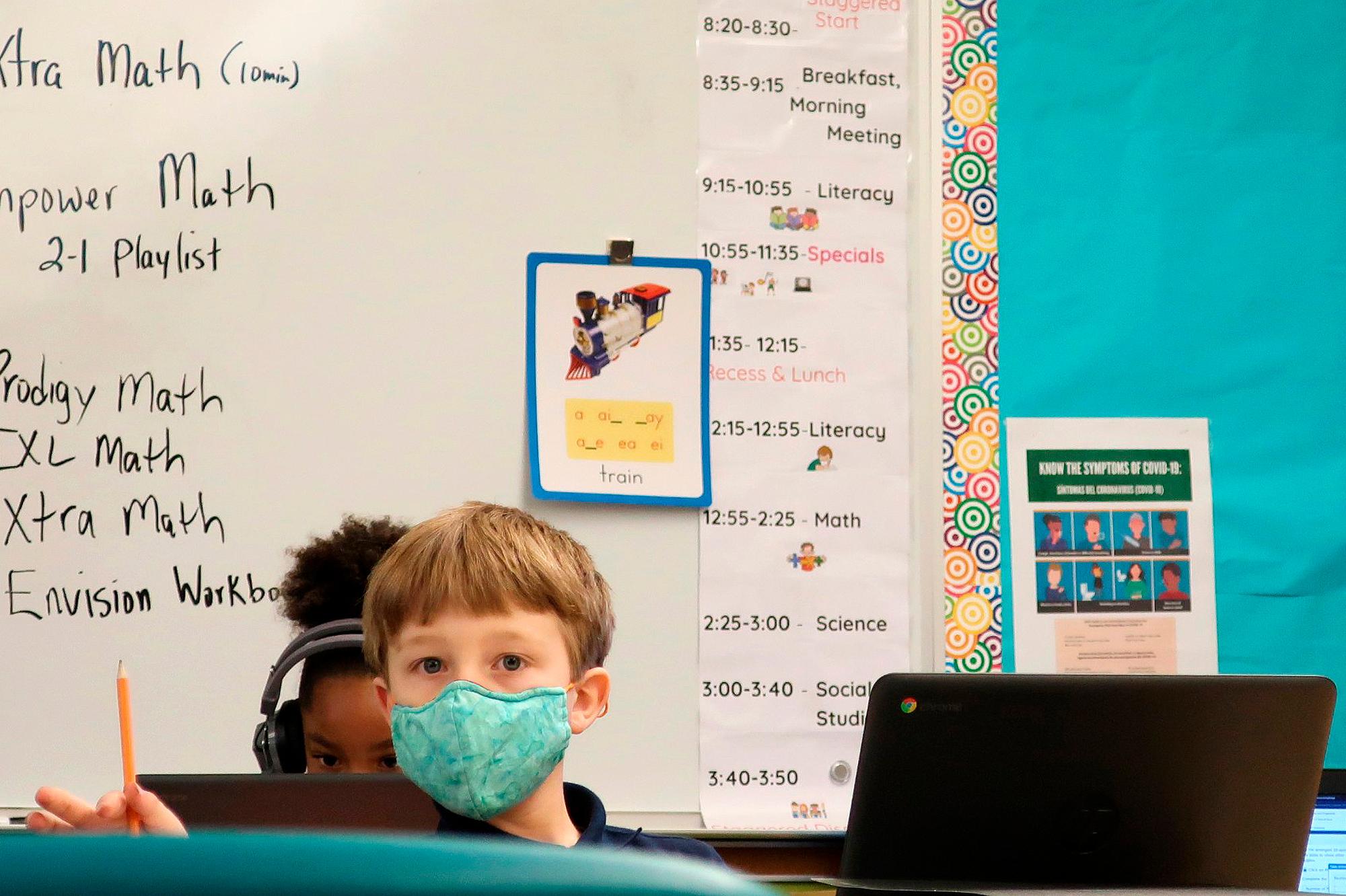
Colorado students would only take one state standardized test this year – in either math or English — under a new legislative proposal introduced Wednesday.
Sponsors of the bill originally proposed scrapping state standardized tests entirely, but in February, federal education officials said states had to administer the tests in order to better “understand the impact of COVID-19 on learning.” Instead, the federal government is offering flexibility on test-taking if states request it, such as administering shortened versions of assessments and allowing districts to offer the tests later in the school year.
The new bill HB21-1161 is a compromise and asks the Colorado Department of Education to seek a federal waiver to cut by more than half the time students will spend on testing this spring. The bill will be heard by the House Education Committee on March 5.
In Colorado, the tests are known as the Colorado Measures of Academic Success. English and math tests are offered in grades three through eight, social studies in grades four and seven, and science in grades five, eight and 11.
Under the bill, half the grades — three, five, and seven — would take the English exam while the other half — four, six, and eight — would take the math exam. Parents can choose to opt their child into both exams. They can also opt-out of exams entirely. The bill would suspend social studies and science exams.
“From canceled school days to switching between in-person and virtual learning, students have faced some of the greatest challenges of their lives this past year,” said Democratic bill sponsor Rep. Emily Sirota. She said the bill eases the testing burden and would still comply with federal guidance on gathering statewide data on learning loss.
The federal government has indicated it will not issue a “blanket waiver” for every state but said teachers and schools don’t have to be held accountable for test results this year. The bill proposes asking the federal government for just that, as was recommended by a state COVID-19 stakeholder group.
Testing proponents argue exams are needed to measure how much students have learned over the year and will allow comparisons to be drawn between school districts and subgroups of students, like students with disabilities. But others, including many teachers and school districts, question the reliability of comparison when Colorado’s 178 school districts all approached learning differently during the pandemic.
The Colorado Department of Education will not permit students to take the test remotely. They say a lack of equitable access to the internet and devices across the state would hamper the reliability of data, and that testing remotely would result in an increased burden for parents, schools and districts, student privacy concerns and technical issues.
Typically, more than 95 percent of JeffCo students take the CMAS tests. This year 25 percent of JeffCo students are in remote learning. Forty percent of Denver’s students are learning remotely.
“That would imply that our currently remote students, whose families have made a decision to stay at home during this school year, would be compelled to come in and take that test in person when they’ve already demonstrated that that is not an environment that they’re comfortable with,” said Matt Flores, JeffCo’s chief academic officer.
In school board meetings across the state, superintendents, board members and parents have voiced concerns about the logistics and value of the tests. School boards in Denver, Cherry Creek and Aurora have passed resolutions opposed to taking the tests this year. Districts argue they know how much learning students have lost or gained through data from school and district tests they already administer.
Districts are in a bind because it could be a month or more before they have a definitive answer on testing. That means they must continue planning to give all the areas of the CMAS this year, even if they end up only giving students part of it.
“We are really in the status quo in terms of state testing,” interim Superintendent Corey Wise told Douglas County school board members Tuesday night. “For all intents and purposes, we are still moving forward with state tests as required.”
There are logistical challenges, too. Wise said he’s been brainstorming with schools about a number of possible complications with testing in the hybrid learning and remote learning models.
Districts must consider how much time the tests will take, whether students have the technology to take them and reconfigure academic schedules. It could mean recalling laptops students have at home and digitally scrubbing them, so students at school can take tests.
And then there are the time considerations. Some educators worry that pausing instruction to take the tests won’t do the students any good.
Typically in high school, the testing window takes a week but in elementary and middle schools, it’s more like two to two-and-a-half weeks, said Matt Reynolds, Douglas County’s chief assessment and data officer. That doesn’t include the time it takes to prepare for the exams.
To even further complicate the whole situation, the question of how many students will opt out is still unknown. That could severely diminish the reliability of tests.
“I’ve heard from a good number of parents, essentially saying, ‘If CMAS is happening, I’m not having my kid do it because enough is enough for this year,’ because of the stress and added pressure for students, and the mental health concerns in general,” said JeffCo board member Stephanie Schooley.
The situation has frustrated school officials and board members.
“The state, if it’s merely hoping to get some state-level data, I think that state-level data is questionable based on the selectivity of the students taking the test,” said JeffCo School Board member Brad Rupert. “If we are essentially forgoing several days of instruction for this hoped-for value at the state level, I don’t think the trade-off is very good.”









